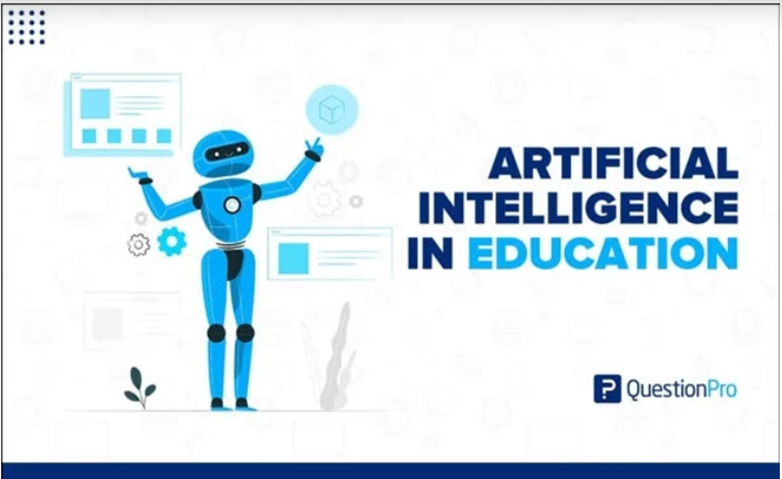Advantages and disadvantages of artificial intelligence (education, medicine, accounting)

Artificial Intelligence has become an integral part of our daily lives, transforming industries and reshaping the way we learn, work and communicate. It has been integrated into various fields, including the education, medicine, and accounting sectors, with a positive impact on them, but it is not without some drawbacks. Below we discuss the advantages and disadvantages of artificial intelligence in education, medicine and accounting.
Advantages and disadvantages of artificial intelligence in education:
Artificial Intelligence is revolutionizing the education sector by enhancing learning experiences, supporting teachers, and providing more personalized learning opportunities for students. Its integration into the curriculum ensures that students are prepared for their academic future and workforce development. So that artificial intelligence can transform the education sector in various fields: such as classrooms, self-learning, adaptive learning, education for people with special needs, bilingual education, and games. However, it is not without some drawbacks.

The most prominent features of artificial intelligence in education are:
1. Analysis of learning styles:
Personalized learning allows for analysis of students' learning styles, identification of strengths and weaknesses, to create personalized plans and lessons and suggest appropriate resources to serve their individual needs.
2. Providing support on an ongoing basis:
It allows virtual teachers to provide support to students around the clock and enables students with special needs to easily achieve their potential.
3. Breaking down communication barriers:
AI-based language translation tools break down communication barriers and help students and teachers from different countries collaborate on projects and learn from each other.
4. Increase digital literacy:
Develop digital literacy and critical thinking skills and prepare students for future academic and professional success. It enables students to engage and think about AI technologies safely, responsibly and ethically. It also encourages analysis and evaluation of question structure, complex information and question assumptions, and consideration of the ethical implications of using AI technology.
5. Transforming the labor market:
The demand for skilled professionals in artificial intelligence and related fields is increasing. Therefore, teaching students artificial intelligence helps them develop the knowledge and skills necessary to practice jobs in the field of technology, data science, etc. It teaches students the basics of the competitive and evolving labor market to generate ideas and solutions, and enhance creativity and innovation .
6. Closing opportunity gaps:
Ensuring they have the skills and knowledge needed to compete in the global workforce, and creating a more diverse pool of talent in artificial intelligence and related fields. It also improves problem solving, creativity and innovation in developing artificial intelligence technologies and solutions.
Enables underrepresented communities to leverage technologies to advance social interests and create positive change in their local and global contexts; It also qualifies them to contribute to policy-making and decision-making processes, and to shape the rules and regulations that govern artificial intelligence applications.
Disadvantages of artificial intelligence in education:
The disadvantages of artificial intelligence are evident:

1. Biased AI systems:
Training AI systems on data collected by humans may introduce class biases over another. For example, if facial recognition technology was originally designed using only white faces due to limited diversity in the developer team, this could lead to exclusion. Diverse perspectives on the process of developing and designing artificial intelligence systems. As a result of managing or amplifying these existing biases, it is possible for these systems to produce unfair and biased outcomes in favor of certain categories of individuals.
2. Wider skills gap:
As a result of the increasing importance of artificial intelligence in various industries, the demand for professional skills in using artificial intelligence will grow significantly. Excluding students from artificial intelligence education may exacerbate the skills gap, thus making it difficult for companies and institutions to find the diverse talent they need to thrive in the economy . Based on artificial intelligence .
3. Economic inequality:
Students who lack AI education may have greater difficulty securing well-paying jobs, as many traditional roles are being automated or dramatically transformed by AI, increasing economic inequality and limiting social mobility for those without market experience. Artificial intelligence based work.
4. Loss of creativity and innovation:
A diverse workforce in AI and related fields leads to more creative problem solving and innovative solutions, but excluding some students from AI education may result in a loss of valuable insights and ideas for advancing AI technologies.
5. Ethical concerns:
Excluding students from learning about AI may create a lack of diversity of viewpoints, creating potential ethical issues and unintended consequences, and leaving students unprepared to deal with ethical dilemmas.
Advantages and disadvantages of artificial intelligence in medicine:

Machine learning and artificial intelligence in healthcare can provide data -driven support to medical professionals. Using algorithms and data, these technologies can identify patterns and provide automated insights that help in common applications such as: health monitoring, medical records management, treatment design, and counseling. digital.
1. Ability to analyze data and improve diagnosis:
Much faster than in humans, including clinical studies, medical records and genetic information that helps medical professionals make diagnoses.
2. Carrying out administrative and routine tasks:
Such as maintaining records, data entry, and survey analysis, which helps save time and enables medical professionals to focus more on patient care.
3. Health monitoring and digital consultation:
It allows people to monitor their health and provides healthcare professionals with essential data.
Disadvantages of artificial intelligence in medicine:
The disadvantages of artificial intelligence in medicine are as follows:
1. Training complications:
AI technologies need to be trained extensively using curated data sets in order to be able to perform as expected.
2. Change may be difficult:
Because medicine is so important to patient care, the medical community needs proof that AI will be effective, with a plan that shows investors that it's worth the cost, so everyone who comes into contact with AI technology needs to understand this technology and how it can help them with everyday tasks
Advantages and disadvantages of artificial intelligence in the field of accounting:

Advantages of artificial intelligence in the field of accounting:
Artificial intelligence in accounting has many benefits, including:
1. Increased efficiency and accuracy:
Useful when automating repetitive, time-consuming tasks , such as data entry and transaction processing, it allows accountants to focus on more strategic and value-added activities.
2. Improve data analysis and reporting:
It allows for advanced data analysis by processing large amounts of financial data and identifying patterns, trends and anomalies that may be difficult for humans to detect.
3. Cost saving:
It achieves significant cost savings for companies by automating routine tasks and simplifying processes. It also reduces additional work when the volume of data increases, and the possibility of errors and rework, thus reducing operational costs related to accounting functions.
4. Real-time financial insights:
It can process financial data directly, allowing companies to access the latest information and insights, thus allowing timely decision making, and responding to changing market conditions or business needs quickly.
5. Improve compliance and risk management:
Accounting standards, tax regulations, and financial reporting requirements are constantly changing, and by automating compliance checks, AI can detect errors, inconsistencies, or potential risks, thus reducing the likelihood of non-compliance and mitigating financial and reputational risks for companies.
Disadvantages of artificial intelligence in accounting:

1. Implementation cost:
Specialized computer engineers need to program and configure systems with large licensing fees, in addition to the initial cost of IT infrastructure such as: hardware, software, and technical training required for employees before using applications, in addition to ongoing maintenance fees or subscriptions to ensure good workflow over time.
2. Accuracy issues:
It may cause problems related to accuracy and data integrity. Artificial intelligence algorithms are only as accurate as the accuracy of the entered data. If the data is incorrect, unbalanced, or inconsistent, this may affect the quality of the processed information, and may also cause errors in reports and financial statements that are not identified. correctly until it is too late to make corrections.
There are also no guarantees on the accuracy of predictions from machine learning models due to fluctuations in market conditions which makes interpretation difficult for accountants who lack experience in analytics. Additionally, when it comes to scalability with multiple customer records that need to be manually verified for accuracy against... Automating processes using a computer algorithm, some human supervision will always be required thus increasing the overhead costs associated with using AI-based accounting software.
3. Replacing human labor with artificial intelligence:
Data can be accessed, processed and analyzed more quickly and accurately than humans, which makes it powerful in the financial sector, but it can lead to job losses , which reinforces social inequality and raises ethical issues and challenges in integrating human skills.
4. Potential for discrimination:
It uses complex algorithms that may contain hidden biases that may cause an unfair replication of human bias when applied to decisions and functions in the field of accounting. It may also cause decisions to be made based on stereotypical views or a tendency not to reward certain groups due to bias and personal beliefs , and thus may violate laws and regulations. Current anti-discrimination laws also undermine fair trade practices at the international level.
5. Data privacy and security concerns:
These advanced technologies require access to large amounts of sensitive information, which creates opportunities for data breaches, identity theft, and other malicious activities. They also cause a lack of transparency in the process due to the use of complex algorithms instead of traditional rules and guidelines that may be difficult for human auditors to understand or verify.
6. Lack of organizational awareness:
The increasing complexity of AI in the accounting industry has created a gap between technology, techniques and regulatory frameworks, thus causing a lack of regulatory awareness to create certain compliance risks for organizations when dealing with AI-powered accounting applications.
As a result of the lack of sufficient understanding of the regulations related to artificial intelligence in several countries, errors may continue to occur, resulting in legal repercussions or financial losses . Inconsistency also arises between the organization’s internal policies regarding dealing with data determined by the regulatory authorities as a result of the lack of sufficient knowledge about the correct procedures. Related to the artificial intelligence tools used in their daily operations.
7. Artificial Intelligence skills gap:
Users need specific technical skills that may be difficult to learn and master; The continuous development of artificial intelligence and its implementation in several new fields requires experts to ensure proper implementation and obtain successful results.

in conclusion:
Artificial intelligence is clearly emerging as a driver of development in multiple areas of life, including education, medicine, and accounting. In the field of education, it improves personalization processes and provides individualized learning experiences, while in the medical field, it helps in accurately diagnosing diseases and developing personalized and appropriate treatments for them. As for accounting, it provides greater effectiveness in managing and analyzing the financial data of institutions and companies.
Source: websites

